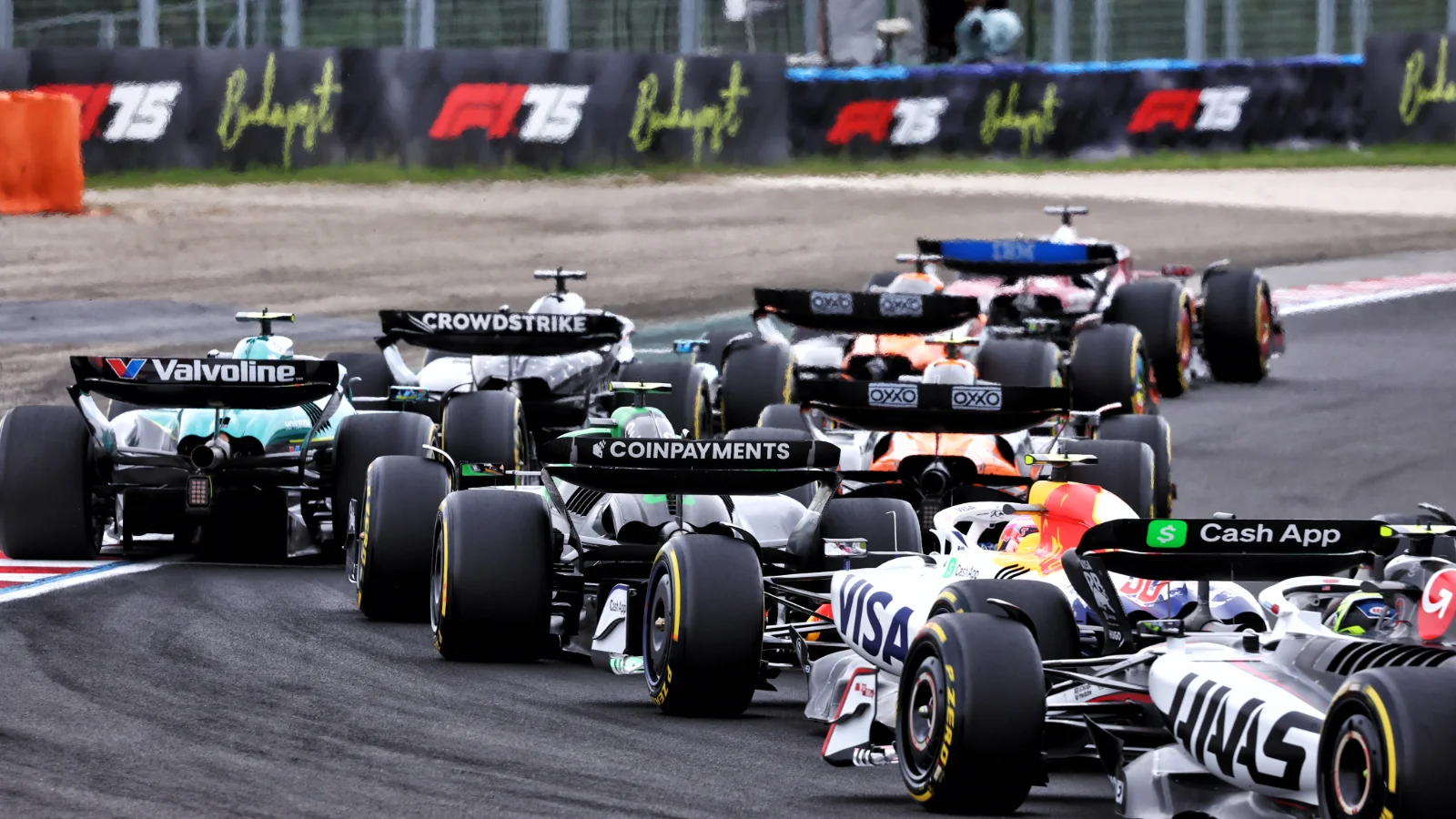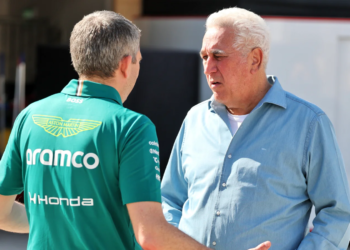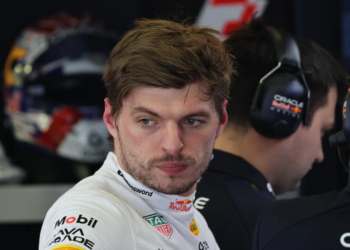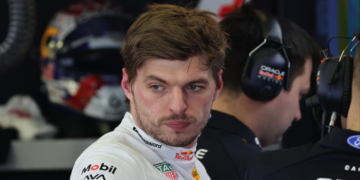Formula 1 and gambling seem to be everywhere together lately. Brightly coloured race cars flash by, plastered with the logos of sports betting companies and online casinos; there is always some sort of brand sponsorship involved.
How did this relationship start? Does it make sense? Is it good for the sport? These questions are asked all the time, and it makes it seem complicated, but it is worth exploring given the legal stakes.
Starting the engines: Early partnerships
For a long time, gambling was frowned upon, like it was something sneaky or wrong. So, it kept away from mainstream sports. Formula 1 was all about luxury and technology, but gambling was mostly done in private. That totally changed in the past few years. Things relaxed a lot, and sports betting became okay in lots of places.
Now, the laws and rules changed everywhere. This new landscape created an opportunity for gambling companies to promote themselves. They started looking at huge sports like Formula 1 to get their name out there.
The first deals weren’t as giant as they are now; they were simple sponsorships. Best online casinos would get their logos on a race car, or on a driver’s uniform, and everything would change over time. It may make them more money.
These deals weren’t cheap. Formula 1 teams saw these companies and said, “Okay, we can work together on this!”
Why the perfect fit is so appealing
Formula 1 offers several valuable things to gamblers with the audience they have available. First off, it’s incredibly popular worldwide. Races take place everywhere, from Europe to Asia to the Americas, so more people from different locations are getting involved. Second, a global spread helps gambling brands reach loads of people.
Formula 1 also brings technology, data, and strategy, all of which are a great fit; it focuses on split-second decisions, risk assessment, and analysis. Sports betting loves those exact things! Sports betting is all about understanding the numbers and how the teams make decisions, the whole sport matches perfectly.
This mix, which is both glamorous and high-tech, draws gambling firms in big numbers.
Taking a turn: Types of deals on the track
Gambling firms don’t just slap their logo on a Formula 1 car and call it a day though. There are, in fact, different ways that they get to working with the teams:
- Team Sponsors: The most common way is when a gambling company becomes an official sponsor of a Formula 1 team. This means their logo gets shown very visibly on the car, the drivers’ suits, and maybe even on the team’s equipment, helping more people get involved in betting.
- Circuit Partnerships: Brands can also partner with specific races (like the Monaco Grand Prix or the British Grand Prix). They will set up special fan lounges, have advertisements all over the racetrack, and make betting easier for everyone who’s present to gamble on the exciting race.
- Data Deals: Some companies work together, using official race data to create unique betting chances. For instance, you might bet on which driver will have the fastest pit stop, or which car will have the highest top speed by the end of the race. These “in-play” betting options keep fans engaged but also require high quality data.
Placing your bets responsibly online
The rise of gambling partnerships in Formula 1 reflects a broader shift toward online betting, for example if you want a flutter and are looking for the best online casinos, then you’ll find plenty of those online.
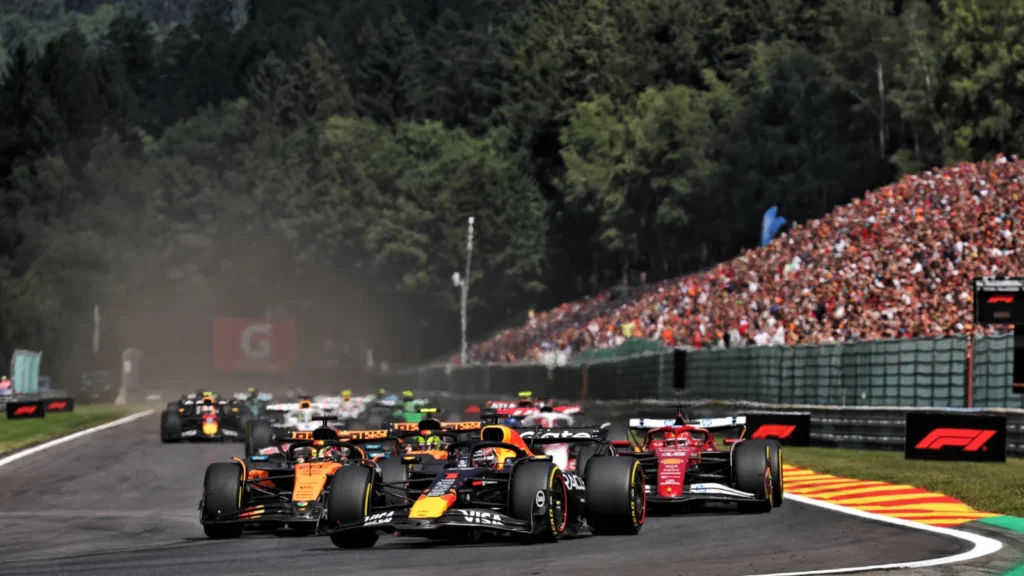
Formula 1’s global reach means these deals are also global, driving more betting engagement in local and foreign markets, there are also huge legal questions as a result. This means accessibility needs to also be responsible.
The ethical lap: Worries about how gambling Is portrayed
Of course, this partnership between Formula 1 and sportsbooks does have a downside. There are growing worries about how visible gambling is, and what is being promoted. Some point out that young people are being exposed to gambling too early.
The fear is that younger crowds start seeing it as normal and safe, which would lead younger people to recklessly gamble.
Others worry about fairness and transparency. Are sportsbooks sharing appropriate data to the racers regarding performance? Are referees treating everyone fairly? How can sports protect the sport and guarantee the public that these partnerships don’t affect sports’ integrity because if integrity is gone, everything is gone.
Some people think Formula 1 should have some limits on these deals. Maybe no showing advertisements during family-friendly hours or making sure gambling companies do more to encourage safe betting.
Pit stop: Concerns in several countries about promotion
Across borders, the issue of gambling promotion is hotly debated. Certain countries have more open laws. Other countries do stricter regulation and laws surrounding sports betting to protect the citizens.
If any Formula 1 team, that sponsors a gambling organization, is racing in certain areas, the team could have some problems.
The legal requirements can vary widely and can cause some sponsorship ads to pull out of the race. So, it just proves that as Formula 1 becomes more global, the more the racing team need to be aware of the local legal issues.
Conclusion
Formula 1 and gambling are now intertwined because both sports see global potential. The association drives profits for both parties, and fans enjoy higher-risk entertainment. But the gambling partnership raises some complex legal issues because gambling, if not regulated, can cause ethical concerns for the teams.
The future will greatly depend on how they handle it. They should strive to strike a balance between excitement and responsibility.
